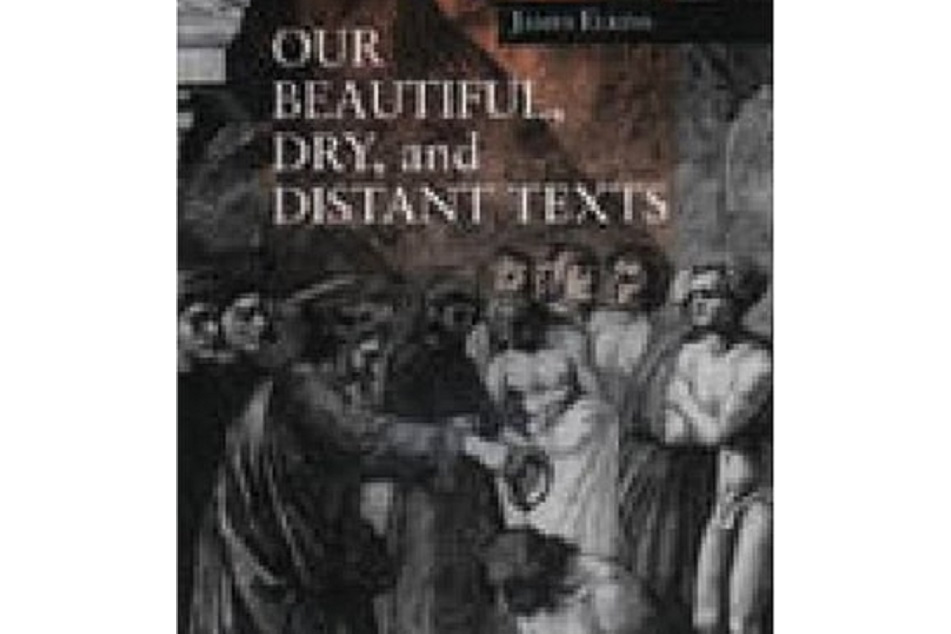《Our Beautiful, Dry and Distant Texts》是1997年Penn State University Press出版的圖書,作者是Elkins, James。
基本介紹
- 外文名:Our Beautiful, Dry and Distant Texts
- 作者:Elkins, James
- 出版時間:1997年9月
- ISBN:9780271016306
內容簡介,作者簡介,圖書目錄,
內容簡介
How do psychoanalytic, semiotic, deconstructive, and other interpretations represent works of art? What can they see, and what must they miss? In Our Beautiful, Dry, and Distant Texts, Elkins suggests that the philosophic problems posed by these questions are essentially insuperable because philosophy makes demands of visual artifacts that they can answer only by becoming mirror images of philosophic discourse. Elkins argues that writing is what art historians produce, and, whether such writing is a transparent vehicle for the transmission of facts or an embattled forum for the rehearsal of institutional relations and constructions of history, it is an expressive medium, with the capacity for emotion and reflection. Therefore, it needs to be taken seriously for its own sake: it is the testament of art history and of individual historians, and it is only weakened and slighted by versions of history that imagine it either as uncontrolled dissemination or objective discovery and reporting. Elkins's investigation is not a prescription for opening art history to new influences or for focusing it on particular problems. It is a plea for circumspection in the entire endeavor of trying to force images into words, and in the curious vocation of writing the history of art.
作者簡介
James Elkins is Associate Professor in the Department of Art History, Theory, and Criticism at the School of the Art Institute of Chicago. His books include The Poetics of Perspective (1996) and The Object Stares Back (1997).
圖書目錄
1. Dialogue with a Saturnian --
2. The Sameness of Theory --
3. On the Impossibility of Close Reading --
4. Saying Who We Are --
5. Saying What We Are Doing --
6. Unease and Disease --
7. The History and Theory of Meandering --
8. The Brancacci Chapel and Spider Webs --
9. The Avaricious Snap of Rhetoric --
10. Writing as Reverie --
11. On Half-Consciousness.

